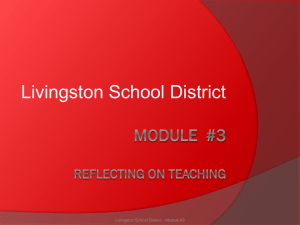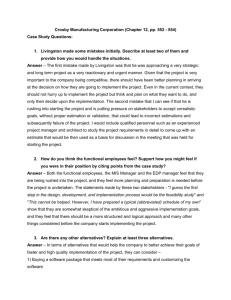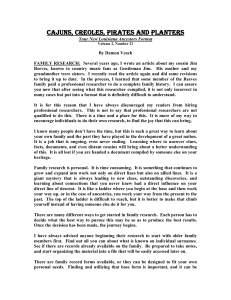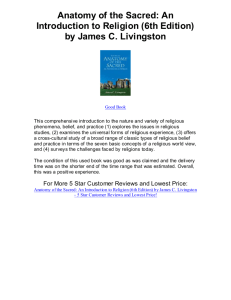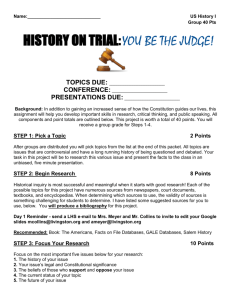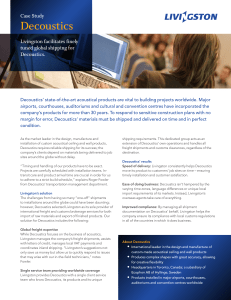Welcome to Chemistry
advertisement
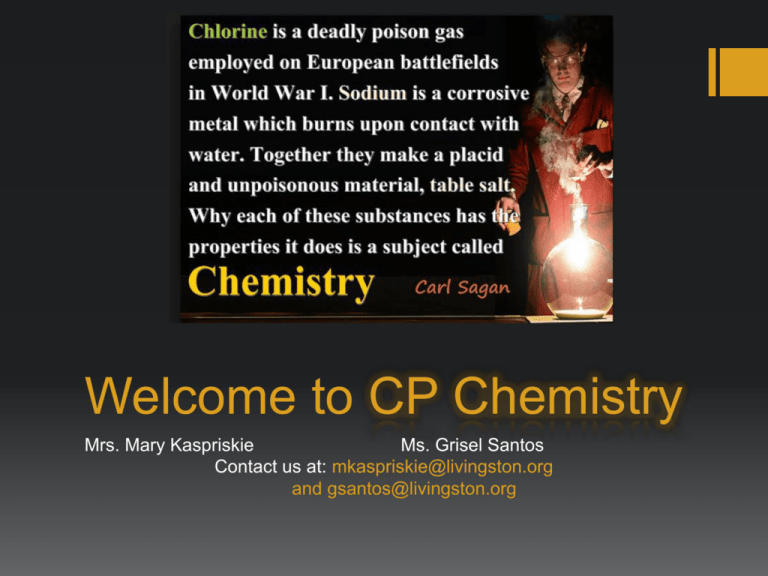
Welcome to CP Chemistry Mrs. Mary Kaspriskie Ms. Grisel Santos Contact us at: mkaspriskie@livingston.org and gsantos@livingston.org A little bit about us Mary Kaspriskie Grisel Santos Certified to Teach Biology, Chemistry, and Environmental Science Graduated BS Biology with a Minor in Chemistry- Bucknell University; MS Microbiology Rutgers/UMDNJ Reading, kayaking, gardening, horse back riding Husband- Eric; Children- Philip and Isabel Graduated BS Biology with a Minor in Chemistry- Montclair State University; MS Biological Science and Teaching Students with Disabilities- Montclair State University Concentration on Inclusive iSTeM Education Bilingual In a Co-taught Classroom Both Teachers and Students Benefit • Teachers • • • • Two heads are better than one Teachers collaborate to share their expertise and skills Learning from each other never ends: content expert and a strategy expert More instructional time on learning because teachers can divide whole class into smaller parts Students Instructional time is sustained because students are not leaving the classroom for “special help” Support is totally geared toward the class/subject matter content with the entire class Students benefit from the teaching style of two teachers Co-teachers serve as role models to students by demonstrating healthy adult interaction Chemistry is the study of matter and the changes it undergoes. These are the basic units that we will study during the school year. 1. Matter and Energy 2. Atomic Theory and Structure 3. Chemical Nomenclature and Bonding 4. Chemical Reactions: Stoichiometry and Thermodynamics 5. States of Matter 6. Acids and Bases and Oxidation/Reduction 7. Equilibrium In addtion to the hard copy textbook that students can keep at home, they will have online access to the textbook which includes special resources. www.successnetplus.com Students should check our webpage daily for calendars, assignments, and upcoming assessments. http://www.livingston.org/Domain/1388 Time Commitment Students attend class three days each four day cycle. On one of the three days, class time is extended from 55 minutes to 80 minutes for laboratory investigations. The extra time is taken from the unit lunch. Students will have 25 minutes for lunch on lab day. • • • D day A day C day B day • Marking Period Grade The student’s Marking Period grade will be determined using a weighted percent system with three categories. 1) Assessments – 60% 2) Labs/ Activities/ Classwork– 10% 3) Homework– 10%. Assessmments Labs/Activities Homework Final Grade The student’s Final Grade is determined: MP1 MP2 MP3 MP4 Final Exam 22.5% 22.5% 22.5% 22.5% 10% MP1 MP2 MP3 MP4 Final Exam If the students follow these simple guidelines, our year will be a success! Arrive to class on time with all class materials. Show respect at all times to everyone and everything. Bathroom is for emergencies only. No food or drink. No cell phones during instructional time. Be prepared to work safely and efficiently in the laboratory. “But what can I do?” Make sure your student has the proper materials. Ask to look at their notebook. Check the Genesis Parent Portal on a regular basis Check our teacher website. Let us know if a problem occurs. Encourage your student to take responsibility. Contact Us If: Student is having difficulty in class. Student is overwhelmed and can’t keep up. Grades have suddenly dropped. Student has not had adequate time to study for a test due to illness, overwhelming athletic or extracurricular commitments, family obligations, etc. mkaspriskie@livingston.org and gsantos@livingston.org For best communication, please email both of us together! Slide show designed by Isabel Kaspriskie

